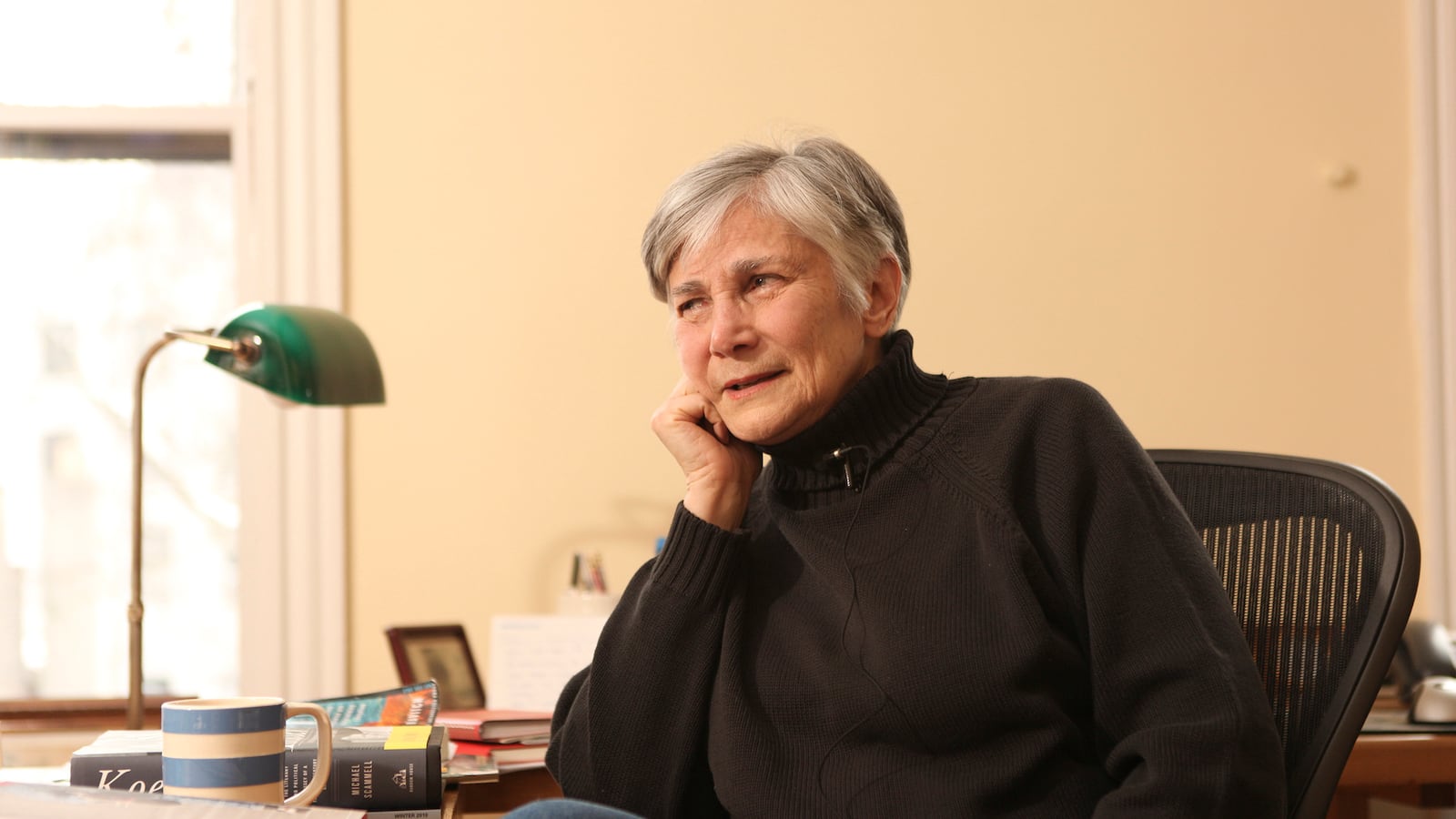In 1991, Diane Ravitch was appointed an assistant secretary of Education by President George H.W. Bush, becoming a leader in the education-reform movement for the next decade, when she championed the No Child Left Behind Act that was signed into law by George W. Bush in 2002. But when NCLB failed to produce the results she had hoped for and assessment tests began dominating policy, Ravitch made a 180-degree turn, and she has spent the last half-decade fighting an apostate’s battle. She has become one of the most vocal supporters of public education, thanks to her many books on education history and her influential blog, where she crusades against the rise of charter schools, vouchers, privatization in education, and standardized testing. Her latest book, Reign of Error: The Hoax of the Privatization Movement and the Danger to America's Public Schools, argues that the American school system is not broken, and that the reform movement will destroy our schools. She also outlines a plan for improvement, including prenatal care for mothers, early education that stresses creativity, balanced curriculums, and more resources for schools. We spoke to the leading opponent of reform about the role of charter schools, which cities are doing things right, and her Twitter proficiency.

In Reign of Error, you call the education of the poor and minority students a scandal. Do you think more Americans should be scandalized by the discrepancy in American educational system?
I think that people should be scandalized by the amount of poverty in this nation. I think they should be scandalized that we have the highest percentage of children living in poverty of any advanced nation in the world. And I think that they should be scandalized that there’s such a difference between the suburban schools where children have such wonderful advantages and the urban schools like Philadelphia where they are closing libraries, letting go of guidance counselors.
I’ve come to think that a lot of the conversation about school reform today is what I think of as the Great Distraction. It’s a way of not talking about the core issues, the causes, if you’re not talking about the causes of poor performance in schools then you really are distracting people from genuine solutions.
There’s no other country in the world that tests every child every year.

What would you say to critics that say you too easily dismiss the success of some charter schools, or that 65 percent of charter schools are single schools run by nonprofits?
I think that [charter schools] have a role to play. Charter schools should do what public schools do badly. They shouldn’t aim to take the best students. Take the dropouts. Public schools have three times as many kids with disabilities. Charter schools don’t want the kids with disabilities. They have very high suspension rates. There are charter schools in Connecticut that suspend kindergartners. Schools with no-excuse policies don’t train leaders. People who are leaders are people who know how to cooperate, build teams, and think differently.
Korea and Finland have no charter schools. What example are we following? Successful nations have built a strong and equitable public school system. Pasi Sahlberg [a former director general at the ministry of education in Finland] said, “We strived for equity, and we got excellence.”
There are several prominent personalities in the reform cause. Michelle Rhee. Wendy Kopp. Rahm Emanuel. Who are the heroes on the anti-corporate reform side? Are they less visible?
I think there are a lot of people. Most of them are in classrooms. They’re not on the public stage. Wendy Kopp never taught. Rhee taught for three years. Bill Gates never taught. These are people making public policy. I think that’s one of the problems. We should have an education system controlled by educators. I don’t believe in mayoral control.
All we have to do is look at high-performing educators of the world. They don’t bring in businessmen to rule the schools.
What school districts or cities are doing it right?
I think right now there’s a difficulty in finding models. There are two that I’ve seen. One is San Diego, and the other is Cincinnati. Cincinnati looks at far more than test scores. And San Diego has a collaborative approach where the school board worked with the principals and superintendents. And they actually have experienced administrators. Testing has not been their emphasis.
You were quoted in David Denby’s New Yorker profile last year saying you can only do this for a couple of years more. What do you think your legacy will be?
I’m trying to put everything I know into my books. I’m telling people to make videos, because why not? I’m on a lecture tour now, I don’t have anybody with me, and I don’t have a staff. I can tell you there is a movement out there. This whole effort is like a great house of cards. There is an immense amount of money coming from big sources, like the Walton family, Jeff Bezos and Bill Gates. The story that I’m seeing all over the country is pushing privatization to defeat the unions. But what I’ve tried to do is to encourage people and see that they’re not alone. In a democracy, numbers are more important than money.
You’re an avid tweeter. Do you follow anyone surprising on Twitter?
I don’t have a whole lot of time for Twitter, because I spend so much time blogging. I rally the troops to know that the day of reckoning will come and the house of cards will fall ... I think that the next president will run on a platform that says we need a different approach to education, one that makes learning joyful and encourages innovation and not obedience.






